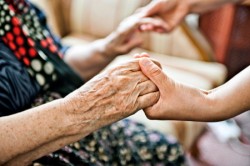How to Tackle Your Recovery from Addiction
Recovery from addiction is a work in progress where abstinence is the primary goal, but, even if complete abstinence is unattainable for a time, the positive changes and goal accomplishments that are achieved in both the short-term and long-term are what recovery is really all about. The Substance Abuse and Mental Health Services Administration (SAMHSA) defines recovery as “A process of change through which individuals improve their health and wellness, live a self-directed life, and strive to reach their full potential.”
The following, are some ideas of how to tackle your recovery from addiction:
Educate Yourself
Educating yourself is an elemental aspect of recovery that simply cannot be ignored. According to a research study by the Committee on the Neurobiology of Addictive Disorders, The Scripps Research Institute ” Drug addiction, similar to other chronic physiological and psychological disorders such as high blood pressure, worsens over time, is subject to significant environmental influences (e.g., external stressors), and leaves a residual neural trace that allows rapid “re-addiction” even months and years after detoxification and abstinence.” Unless you know the truth about what you are up against, you’ll miss the opportunity to make the changes that will maximize your recovery success.
Change the Way You View Yourself and Your Addiction
The notions that addiction is a self-acquired problem of choice, a social problem, an educational or spiritual issue, a guilty behavior, or a pharmacological problem has paved the way for continued drug abuse and relapse occurrences. Disconnecting from those negative patterns of thinking and feeling, and finding more strength and belief within yourself is critical to your recovery from addiction.
Changing the way you view yourself and your addiction instills the hope for progress that you will need to realign your thoughts with your emotions and behaviors toward recovery. Nobody’s perfect and despite the historical views and stigmas of addiction, we know that it is a chronic and relapsing brain disease that is treatable and people do recover.
Make Changes to Avoid Relapse Triggers
Change can be a frightening experience and support is critical to keep you motivated when necessary changes are difficult to make. Moving, giving up old friends and habits that remind you of using, taking a different route to work or home, and changing the way you think about or react to situations and others is not always something you’ll be able to do immediately.
The end result may even appear fruitless, but, a recovering addict knows that every little step they take to avoid relapse triggers keeps them moving in the right direction. According to the Washton Institute, “Although abstinence is essential to relapse prevention, it is not the only issue. Recovery can be achieved only when patients change their attitudes and behaviors that led to and/or were associated with drug use.”
Learn to Deal Appropriately with Stress and Negative Emotions
Different drugs cause different effects in people, but, a common element that exists for those who abuse them is the fact that, in some way, the drugs make them feel better and once they become dependent, they tend to turn to the drug abuse more easily to deal with stress, depression, anger, anxiety, and other negative emotions.
Emotions and stress are top on the list of things that can lead a person into believing that things are worse than they are and change their recovery outlook. Mental health and drug abuse are never far from each other and getting the right counseling, support, and behavioral therapies to learn how to deal with these issues effectively is recommended.
Stay Busy
Drug addiction takes a precedence in the mind of its victims over and above the normal things would bring a person joy and satisfaction. Re-wiring your mind after the “rewarding” effects of those drugs are gone requires you to find alternative activities in life to give you a sense of purpose.
Staying busy will help to keep your mind off of the drugs and one of the best ways to do this is to help others, believe it or not. Helping others can be a highly rewarding activity that engages you in your community and gives you the added sense of self-esteem and confidence you may have been lacking before.
Take Care of Yourself
The damages to health, relationships, social functioning, and basic self-fulfillment can only be healed by the investments you make in taking care of yourself.According to the SAMHSA, “Recovery pathways are highly personalized. They may include professional clinical treatment; use of medications; support from families and in schools; faith-based approaches; peer support; and other approaches.” Whatever it takes to make you whole physically, mentally, emotionally, and spiritually is what you need to strive for. No more letting things slide or suppressing them and hoping they will heal on their own.
Don’t Overreact to Cravings or Relapse
Relapse rates are high for certain types of drugs and some individuals have greater risks of relapse than others. Cravings can still appear out of nowhere and when least expected for an indefinite time. Don’t overreact to those conditions that can self-sabotage your recovery. Even when relapse occurs, it doesn’t mean that your recovery is failing, but, rather that you need to remain extra diligent in your recovery efforts, possibly going back into treatment.
Build a Positive Support Network
Building a positive support network cannot be stressed enough for people to tackle their recovery from addiction. Participating in group counseling sessions, going to A.A. or N.A. meetings, restoring family relationships, and making new ones with people you know you can trust can be a lifeline in recovery you’ll get from nowhere else.












